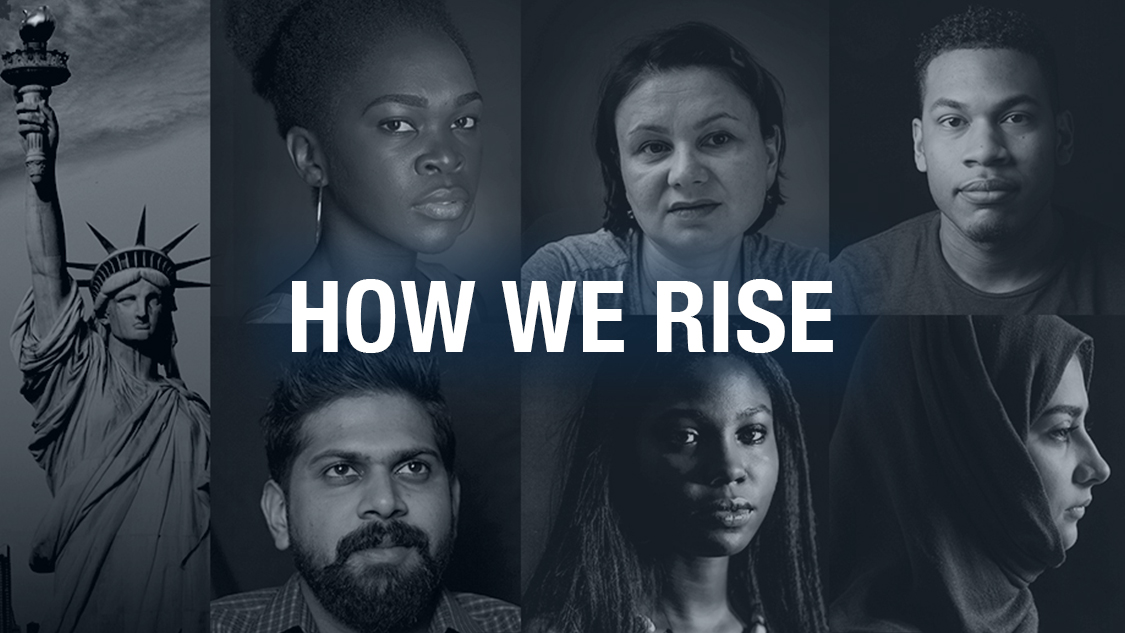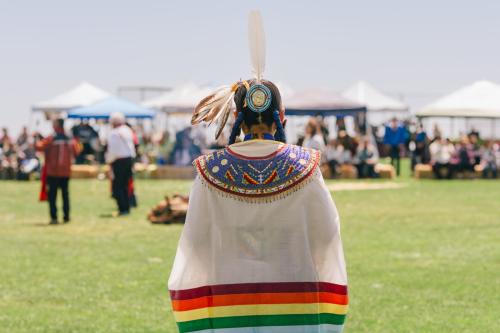In a recent video, Republican National Convention speaker, mom, and anti-abortion activist, Abby Johnson said it would be “smart” for police to racially profile her adopted biracial “brown son.” She went on to distort statistics, making the case that Black men are more prone to commit violent crime and blamed the absence of Black fathers. Her mischaracterization of Black men writ large and her own son, rooted in racist stereotypes, was abhorrent. Less than 6% of Black people are arrested for violent crimes in any given year, yet Black people are continually stereotyped, profiled, and dehumanized. In the same video, Johnson surmised that her “brown son” would grow up and “he’s going to be a tall, probably sort of large, intimidating-looking-maybe brown man. And my other boys are probably gonna look like nerdy white guys,” a comparison that drew upon stereotypes about presumptions of Black people’s guilt and intellectual inferiority and the presumed innocence and intellectual superiority of Whites. Public reactions went from shock, to disbelief, to outrage, and even calls for Child Protective Services to step in for abuse. As her video went viral, friends and colleagues sent messages of outrage and disbelief. We read these with surprise – not at Johnson’s words, but at the incredulity of our allies. Did they think that having a child of color meant that white parents would commit to anti-racist perspectives and activity?
We are both adult children of transracial adoption. SunAh, a Korean adoptee to white adoptive parents in Tennessee during the 1980s, and Carla, a Black adoptee to white adoptive parents in Texas during the 1970s. Though adopted under different circumstances and to different families at different times and growing up in different U.S. cities, our white adoptive parents took similar approaches to parenting. When we were young, our parents told us to seek out the police if we were lost or afraid, assuring us that officers would provide us care and safety. It wasn’t long before we discovered that, while that might have been true for our white families, these protections did not necessarily extend to us or other people of color. While well intended, our parents lacked an understanding of racial dynamics as their positions in the racial hierarchy did not require such knowledge.
Transracial adoption has long been heralded as evidence of the U.S.’s progressiveness and a move towards a truly colorblind society. As the primary caretakers of children of color, white adoptive parents are required to address race and racism in ways that few other white individuals find necessary. Yet, adoptive parents are not immune to racist, stereotypical, and tokenizing beliefs about non-white racial and ethnic groups and raise their children within these racist logics. Johnson is a very public case in point. Carla’s research with adoptive parents found that parents struggle when dealing with race, vacillating between colorblind and race conscious discourse and both resisting and acquiescing to stigmatized ideas attached to their child’s race. This struggle is not surprising as white people enjoy a relatively privileged racial position and tend to be unaware or inexperienced when negotiating a racist system. This lack of awareness is on full display in the words of Abby Johnson. Instead of condemning the justice system for its pattern of violence against Black Americans, Johnson is complicit in this mistreatment, signaling that parental love is no match for whiteness.
The effects on adoptees’ development is profound. In SunAh’s research with transnational transracial adoptees, she finds transracial adoptees face unique challenges to their identity and often struggle making sense of their upbringing. Racial identity—the meaning and importance people give to their racial group membership and/or the ways that people make racial classification salient in our lives—is a crucial component of development, feelings of belonging, and self-esteem. It is not uncommon for transracial adoptees to report identifying as white at some point in their lives. But, transracial adoptees are not white, as they learn through various microaggressions and discrimination throughout their lives. White adoptive parents’ general inattention to how race factors into their lives and the lives of the children leave adoptees with few, if any, tools to discuss race, let alone racism, as experienced within and outside of their families.
The inability of white parents to racially socialize Black children was outlined in the National Association of Black Social Workers’ (NABSW) 1972 position statement on transracial adoptions. The importance of Black children’s socialization and racial identity continues to be relevant today.
“The socialization process for every child begins at birth and includes his cultural heritage as an important segment of the process. In our society, the developmental needs of Black children are significantly different from those of white children. Black children are taught, from an early age, highly sophisticated coping techniques to deal with racist practices perpetuated by individuals and institutions. These coping techniques become successfully integrated into ego functions and can be incorporated only through the process of developing positive identification with significant Black others. Only a Black family can transmit the emotional and sensitive subtleties of perception and reaction essential for a Black child’s survival in a racist society.”
Native American activists made similar vehement opposition to the Indian Adoption Project, which lasted from 1958 to 1967, characterizing transracial adoption as a form of cultural genocide.
Yet, transracial adoptions continue. The Interethnic Placement Act (IEPA) (1996), eliminated any consideration of the use of race, color, or national origin when making placement decisions, unless it can be demonstrated that a same-race placement is clearly in that child’s best interest. Many would argue that same-race placement is clearly in children’s best interest, but colorblind logics continue to guide adoption placement.
If we are committed to protecting children and families, then drastic changes need to be made to our current child welfare system. These can include, comprehensive and extensive free healthcare for women and children; housing interventions for vulnerable children and families to combat housing instability and/or homelessness; connecting parents with vocational specialists and job training; and taking a family restoration approach to child welfare. Within the current adoption system, the least we could do is require extensive cultural competency trainings for social workers, adoption professionals, and adoptive parents and provide post-adoption services.
The NABSW’s statement written almost 50 years ago continues to ring true: “Our society is distinctly black or white and characterized by white racism at every level. We repudiate the fallacious and fantasied reasoning of some that whites adopting Black children will alter that basic character.”
Dr. SunAh M. Laybourn is an Assistant Professor of Sociology at the University of Memphis. She received her PhD in sociology from the University of Maryland in 2018. Her research focuses on racialization, racial and ethnic identity, and culture.
Carla Goar is an Associate Professor of Sociology at Kent State University. Her research areas include the different factors that impact race and equality within small groups, adoption, and stigma within families.
The Brookings Institution is committed to quality, independence, and impact.
We are supported by a diverse array of funders. In line with our values and policies, each Brookings publication represents the sole views of its author(s).





Commentary
Abby Johnson’s comments about her adopted Black son are problematic. Here’s why.
August 26, 2020